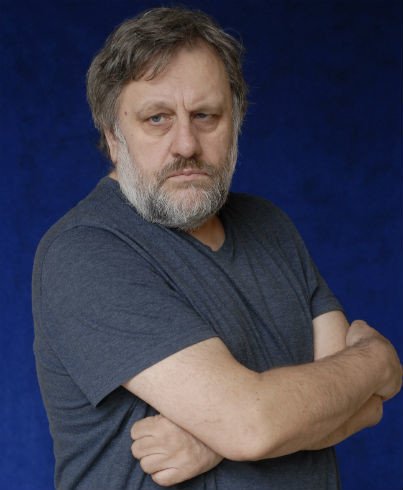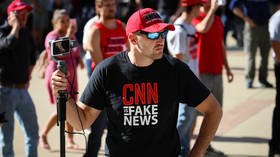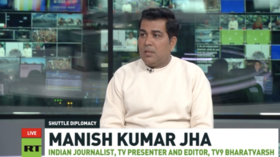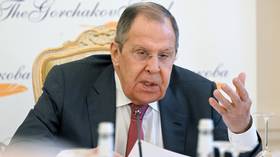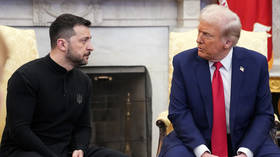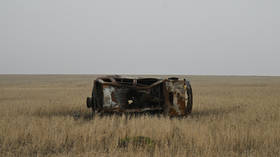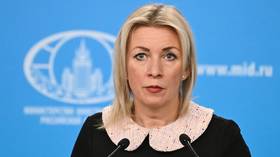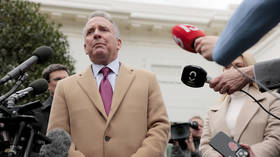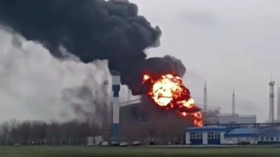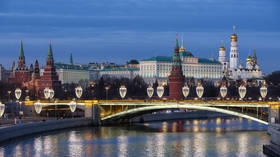Slavoj Zizek: We’re at a grim crossroads in this pandemic: one path leads to utter despair, the other to total extinction
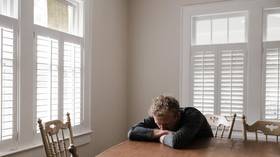
A quote from Woody Allen, from back in 1979, is now an apt if disturbing description of mankind’s predicament with Covid. We have a stark choice to make if we are to survive and construct a new society.
We read again and again in our media that we are at the “beginning of the end” of the pandemic: although numbers of infections and deaths are still rising, millions are already vaccinated, so there is now at least the proverbial light at the end of the tunnel.
In spite of worries about how we will survive the next few months, there are signs of relief. We deserve this relaxation since what was so depressive about the pandemic was precisely that there was no clear exit in sight – the feeling of the end of the world dragged on without end. Now it looks like the nightmare will be over soon, we will try to obliterate it from our memory and return to normal life as soon as possible.
Some intellectuals bent on finding a deeper meaning in every catastrophe even evoke these famous lines from Friedrich Hölderlin’s hymn ‘Patmos’, “Wo aber Gefahr ist, wächst das Rettende auch” (“Where the danger is, that which saves is also growing”), as relevant for our predicament. In what precisely resides this relevance? Is it simply that science saved us by inventing vaccines in a record time? Is it that the pandemic reminded us of our mortality and vulnerability, and thus cured us of our arrogance, teaching us we are part of nature, not its masters?
However, it would be much more appropriate to turn around Hölderlin’s verses: “But where that which saves us is growing, there are dangers also.” And these dangers are multiple. Let’s begin with the World Health Organization experts’ warning that, though the effects of the pandemic have been very severe, it is ‘not necessarily the big one’, and the world will have to learn to live with Covid-19.
Also on rt.com Zizek: There will be no return to normality after Covid. We are entering a post-human era & will have to invent a new way of lifeNot only is the Covid pandemic far from over, given numbers are still rising, but new pandemics are on the horizon; global warming, fires, and droughts are ruining our environment; the economic effects of the pandemic will strike later in 2021 giving a new boost to social protests; digital control of our lives will remain; mental health problems will explode… and we will have to learn to live not just with Covid-19, but with all this medley of interconnected phenomena. This is why we are now going through the most dangerous moment of the entire pandemic. To relax now would be like falling asleep behind the wheel of a car moving fast on a winding road. We have to make lots of decisions that cannot all be grounded in science – our moment is now the moment of radical political choices.
True, science may save us. Greta Thunberg was right that we should trust it, but in a true scientific spirit, we should also admit two things noted by Juergen Habermas: we didn’t just learn new things, we also got to know how many things we didn’t know, plus we were forced to act in an impenetrable situation without knowing what the effects of our acts would be.
This not-knowing does not concern only the pandemic itself – we at least have experts there – but even more its economic, social, and psychic consequences. It is not simply that we don’t know what is going on, but that we know we don’t know, and this not-knowing is itself a social fact, and it is inscribed into how our institutions act.
We should take even a step further here: it is not just that we know more and more what we don’t know, it sometimes appears as if reality itself acts as if it forgot its own laws. We know the joke about ‘knowledge in the real’ – that a stone knows the law it must obey when it’s falling down. But the basic lesson of quantum physics is that nature itself doesn’t know all its laws, and this is why Albert Einstein reacted with such anxiety to quantum physics and its basic premise of the indeterminacy of nature – for Einstein, this simply meant that quantum physics is an incomplete theory that ignores some unknown variables.
Also on rt.com Slavoj Zizek: We should look to how Cuba coped with the fall of the Soviet Union to deal with our new Covid worldThere is a supreme irony in the fact that, although both Einstein and physicist Niels Bohr were atheists, their most famous exchange is about God: Einstein remarked, “God does not play dice,” and Bohr snapped back, “Stop telling God what to do.” Their disagreement was not about God, but about the nature of our universe: Einstein couldn’t accept that nature itself is in some sense “incomplete”. The pandemic seems to be signaling that Bohr was right.
This indeterminacy, which reaches all the way down to subatomic level, opens up the space for our interventions, but only if we fully assume it – that is, if we reject determinism in both its main versions: naturalism and divine providence. A Slovene theologian who advocates keeping churches open in spite of quarantine regulations answered the reproach that many lives would be lost in a simple and straight way: “The mission of the Church is not health but salvation.”
In short, the death and suffering of thousands doesn’t matter with regard to their salvation in eternity through God. This is what Mother Theresa was doing in Kolkata: her mission was to take care of “the hungry, the naked, the homeless, the crippled, the blind, the lepers, all those people who feel unwanted, unloved, uncared for throughout society, people that have become a burden to the society and are shunned by everyone” – but, as critics have demonstrated, more than their health, she took care of their salvation and deathbed conversion to Catholicism. So, we can easily imagine what she would have been doing now when the pandemic is ravaging the world: no vaccination, not even respirators, but just spiritual solace in a grey environment for the last hours of our life.
And we can also imagine what will happen in the near future if the pandemic explodes even more, through new mutations of the virus, and renders vaccines inefficient: people will be dying in even bigger numbers than from the Spanish flu and, lacking any vision of how to contain the pandemic, our authorities will resign themselves to just providing care for the dying, inclusive of pills for a painless death, while the Church will offer mass conversions to diminish depression with the promise of salvation for the faithful.
Also on rt.com Zizek: Covid crisis sparked fear of communism & China’s rise as superpower. But best way to prevent communism is to FOLLOW ChinaOur ultimate choice is thus best encapsulated by the beginning of a text written by Woody Allen back in 1979: “More than any other time in history, mankind faces a crossroads. One path leads to despair and utter hopelessness. The other, to total extinction. Let us pray we have the wisdom to choose correctly.” The correct choice is the decision to assume the despair and utter hopelessness of our predicament: only if we pass through this zero-point we will be able to construct a new society-to-come.
The wrong step may lead us to a new divided society with the privileged living in isolated bubbles while the majority vegetates in barbaric conditions. Today, more than ever, egalitarianism is not just a vague ideal, but an urgent necessity: vaccines for all, universal healthcare, a global struggle against global warming… Here is a small unexpected sign in this direction: Uğur Şahin, BioNTech’s CEO, a Turk living in Germany who played a key role in inventing the best vaccine, said in an interview at the end of 2020: “At the moment, it doesn’t look good – a hole is appearing because there’s a lack of other approved vaccines and we have to fill the gap with our own vaccine” – a wonderful moment when the CEO of a company wants the competitors to get stronger because he knows that only all together can they win the struggle against the pandemic.
So, maybe the proper way to conclude is to repeat the well-known warning that is sometimes added to the idea of the light at the end of the tunnel: let’s make sure that this light is not that of another train rushing towards us from the other side.
Think your friends would be interested? Share this story!
The statements, views and opinions expressed in this column are solely those of the author and do not necessarily represent those of RT.
